Michael J. Behe's Blog, page 577
October 28, 2018
Theodore Dalrymple and Ken Francis on the terror of a materialist atheist’s existence
 Readers who like essays may be in for a treat. Ken Francis, often hat-tipped here, and psychiatrist Theodore Dalrymple have written a book as a series of essays, The Terror of Existence: From Ecclesiastes to Theatre of the Absurd:
Readers who like essays may be in for a treat. Ken Francis, often hat-tipped here, and psychiatrist Theodore Dalrymple have written a book as a series of essays, The Terror of Existence: From Ecclesiastes to Theatre of the Absurd:
The cultural death of God has created a conundrum for intellectuals. How could a life stripped of ultimate meaning be anything but absurd? How was man to live? How could he find direction in a world of no direction? What would be tell his children that could make their lives worthwhile? What is the ground of morality?
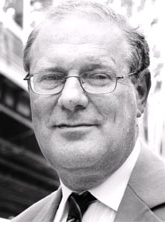
Existentialism is the literary cri de coeur resulting from the realization that without God, everything good, true and beautiful in human life is destined to be destroyed in a pitiless material cosmos. Theodore Dalrymple and Kenneth Francis examine the main existentialist works, from Ecclesiastes to the Theatre of the Absurd, each man coming from a different perspective. Francis is a believer, Dalrymple is not, but both empathize with the struggle to find meaning in a seemingly meaningless universe.
Here’s a sample passage:
KF: You say: “Godot seems to me to be the work of a man who can see all the advantages and consolations of faith in a personal God, and who in fact was brought up in such a faith, but who cannot assent to it intellectually.” There are also great advantages in the moral autonomy of atheism, if true, as well as the consolation that Hell does not exist. Perhaps Beckett’s faith was blind faith, as opposed to faith based on deep intellectual reasoning. It’s difficult to understand how disbelief in God is intellectual, when according to Naturalism, the probability of having reliable cognitive faculties for metaphysical truths is extremely low, if not zero. As Charles Darwin rightly acknowledged: “Would any one trust in the convictions of a monkey’s mind, if there are any convictions in such a mind?”[1] The Christianity preached in 20th century Ireland (both Catholic and Protestant) was and still is in many ways anti-intellectual. And that’s probably why Beckett didn’t seem to have a grasp of sophisticated theology. He confers freedom of the will on his main characters in Godot, which contradicts his Godless message. Also, surely in a meaningless world, communicating such struggles on stage would be without meaning and thus a waste of time…….
[1] Darwin Correspondence Project, letter, Darwin, C.R. to Graham Williams, July 3, 1881.
Follow UD News at Twitter!
See also: Theodore Dalrymple on how psychology undermines morality
Copyright © 2018 Uncommon Descent . This Feed is for personal non-commercial use only. If you are not reading this material in your news aggregator, the site you are looking at is guilty of copyright infringement UNLESS EXPLICIT PERMISSION OTHERWISE HAS BEEN GIVEN. Please contact legal@uncommondescent.com so we can take legal action immediately.
Plugin by Taragana
Larry Krauss cites physics to fight back against sex harassment charges
 Readers will remember celebrity atheist physicist Larry Krauss. We first heard the story about the sexual harassment charges at Buzzfeed in February. Krauss announced his retirement last week but has also offered a lengthy rebuttal to the accusations.
Readers will remember celebrity atheist physicist Larry Krauss. We first heard the story about the sexual harassment charges at Buzzfeed in February. Krauss announced his retirement last week but has also offered a lengthy rebuttal to the accusations.
Among other things, he says the physics of some of the allegations doesn’t hold up:
One piece of evidence against Krauss was a photo he took with a fan, who is leaning back toward him to take a selfie. She claimed the photo showed his hand moving toward her breast just before he grabbed it. Krauss says a closer examination of the photo clearly shows his hand is actually moving away from the woman’s breast. He said he should have caught this earlier, being a physicist. After showing the photo to colleagues, he said, they agreed with the trajectory of his hand.
…
In yet another accusation, Krauss was accused of showing an inappropriate drawing to staff members. He said it was “an admittedly juvenile drawing trick” he learned in fifth grade but that he drew it only after their “enthusiastic consent.” He said there was “more sexually explicit material in Disney movies.”
The accusations against Krauss appear to be exaggerated, but he said that even if some were true, none rose to the level of “severe and pervasive” that warranted his firing, he said. Ashe Schowe, “Physicist Uses Physics To Rebut Sexual Misconduct Allegations” at Daily Wire
I (O’Leary for News) can’t speak to the specific accusations but, as a matter of possible interest, I had a brief story-related run-in with him back in 2009, when I offered a mild riposte to his takedown of film producers who misrepresent physics in popular sci fi films. I said I had enjoyed his presentation but that the filmmaker must put butts in seats to make back the millions spent and that we ought to be glad if the misrepresentations are not more serious. He responded,
Needless to say, Ms. O’Leary misunderstood, or mis-represented much of what I said.. but I now realize the reason for this, as it seemed she was at the wrong meeting. It was for science writers and not religious writers, which, as far as I can tell from her blog, is what she is. Her conceptions of science, and her understanding of modern issues, seems very confused Denyse O’Leary, “Physicist Lawrence Krauss explains to Canadian science communicators: There are NOT two sides to a story (just his side?)” at Salvo
More at Colliding Universes.
I got the impression that Krauss is one of those people who just don’t understand the effect they are having on others. In Sensitive Snowflake City, that failing can become career fatal, it seems, whether or not other things happened as well.
Note: In the case of Darwinian Francisco Ayala, who was forced to step down recently in an unrelated sexual harassment controversy, well-known memory researcher Elizabeth Loftus deplored the outcome:
“I’m just shocked that this man’s life was ruined over this collection of reactions to his behavior,” says Elizabeth Loftus, a UC Irvine experimental psychologist who has vocally supported Ayala. After reading the report, she said the “thin” allegations “are far, far from the obviously bad behaviors that we want to be punishing. I feel like: ‘Who’s next?’” Meredith Wadman, “Report gives details of sexual harassment allegations that felled a famed geneticist” at Science
Well, if Ayala was Me-Too’d without really doing very much, he certainly inflates the status of the Me Too’s. Keep an eye on the file.
Follow UD News at Twitter!
See also: At Buzzfeed: Serious sexual assault allegations against celebrity physicist Lawrence Krauss
Francisco Ayala has stepped down in sexual harassment controversy at University of California Irvine
and
AAAS introduces new policy for expelling members which seems to be aimed at seem to be harassment rather than research fraud. Ayala was president of AAAS in 1995.
Copyright © 2018 Uncommon Descent . This Feed is for personal non-commercial use only. If you are not reading this material in your news aggregator, the site you are looking at is guilty of copyright infringement UNLESS EXPLICIT PERMISSION OTHERWISE HAS BEEN GIVEN. Please contact legal@uncommondescent.com so we can take legal action immediately.
Plugin by Taragana
J.P. Moreland on Darwinism and “reverse intelligent design”
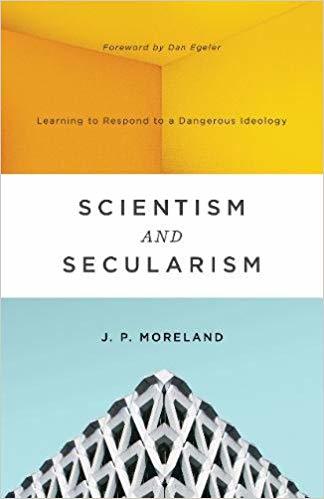 Our philosopher-photographer friend Laszlo Bencze sends us some thoughts on J. P. Moreland’s recent book, Scientism and Secularism: Learning to Respond to a Dangerous Ideology: – (O’Leary for News)
Our philosopher-photographer friend Laszlo Bencze sends us some thoughts on J. P. Moreland’s recent book, Scientism and Secularism: Learning to Respond to a Dangerous Ideology: – (O’Leary for News)
I just finished my reading of this book and I think it’s an excellent analysis of the issues which undergird evolution, namely that science and only science can provide knowledge about the world. This view, known as “scientism” relegates both philosophy and theology to the realm of personal opinion where both may be safely ignored. Of course, as Moreland points out, this position is self-refuting because all statements about the power and purpose of science are necessarily philosophical statements:
The irony is that strong scientism is a philosophical statement, expressing an epistemological viewpoint about science; it is not a statement of science, like “water is H2O” or “cats are mammals.” Strong scientism is a philosophical assertion that claims that philosophical assertions are neither true nor can be known; only scientific assertions can be true and known. …
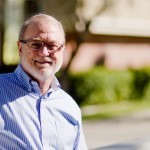
In 1869, when Charles Eliot was elected president of Harvard University, he made the following claim in his inaugural address: “Philosophical subjects should never be taught with authority. They are not established sciences; they are full of disputed matters, and open questions, and bottomless speculation.” …President Eliot’s assertion was philosophical and not scientific…it is therefore self defeating. — Scientism and Secularism, J. P. Moreland, p. 52
He takes a strong stand for “first philosophy”:
What, exactly, is first philosophy? Roughly, first philosophy is the notion that there is a realm of rational investigation that (1) is the proper domain of philosophy, (2) is independent of and, indeed, more basic or fundamental than science (that is, science is built upon the foundation of the results of first philosophy), and (3) gives us knowledge of the topic studied in that realm, including knowledge of reality. —Scientism and Secularism, J. P. Moreland, p. 98

Laszlo Bencze
Finally, he touches lightly on Darwinism and how is merits are argued:
Many contemporary scientists—both theistic evolutionists and others—rely upon claims about God’s nature and ways in their scientific case for evolution….Cases of alleged “bad or inefficient design” are used by scientists to argue that these cases falsify the notion of a god because if such a god existed, surely he could do better job than he did in the bad, inefficient cases.
Well, if a theological model of God can be used to falsify that model, why can’t a different theological model be used to produce scientific evidence for that model of God? Advocates of methodological naturalism can’t have it both ways. On the one hand, they claim that science must adopt methodological naturalism and that theological propositions are entirely outside the range of science. On the other hand, for more than 150 years scientists have used theological models of an incompetent, inept designer to test against the evidence of biology and paleontology to show that the evidence demonstrates that designer does not exist. This sounds like a “reverse intelligent design” to me. —Scientism and Secularism, J. P. Moreland, p. 167–168
Follow UD News at Twitter!
See also: J. P. Moreland: How scientism leads to post-modern relativism
and
J. P. Moreland on claims we know better than we know science truths
Copyright © 2018 Uncommon Descent . This Feed is for personal non-commercial use only. If you are not reading this material in your news aggregator, the site you are looking at is guilty of copyright infringement UNLESS EXPLICIT PERMISSION OTHERWISE HAS BEEN GIVEN. Please contact legal@uncommondescent.com so we can take legal action immediately.
Plugin by Taragana
Why do Catholic intellectuals claim Thomas Aquinas would cozy up to Darwinism?
 Especially when it comes to a Darwinian approach to human beings?
Especially when it comes to a Darwinian approach to human beings?
Man, the universal, does not really exist. According to the late Stanley Jaki, Chesterton* detested Darwinism because “it abolishes forms and all that goes with them, including that deepest kind of ontological form which is the immortal human soul.” And if one does not believe in universals, there can be, by extension, no human nature—only a collection of somewhat similar individuals.
Classical notions of ethics were radically dependent upon this notion of a real, knowable human nature. Aristotle and others often argued for what is ethical in terms of what leads to human flourishing and fulfillment. Yet if there is no human nature, how can we know what human fulfillment looks like in general? Tim and Tom might, then, flourish under different moral codes. Lack of a human nature may leave us with “different strokes for different folks.”
As philosopher Alasdair MacIntyre showed in After Virtue, the way out of this modern dilemma is to recognize that if something’s nature includes purposes or proper functions, then “ought” follows from “is.” For if man is a certain sort of being, if he has a certain formal nature, then there are facts about how man ought to behave. There are objective criteria by which we can judge a human being good or bad. This kind of telos-infused nature cannot be sustained by Darwinism, however, for Darwinism denies that organisms have formal natures or are purposefully made. Logan Paul Gage, “Darwin, Design & Thomas Aquinas:” The Mythical Conflict Between Thomism & Intelligent Design at Touchstone
The pass elite Catholics have given to naturalism (nature is all there is, often called “materialism”) by accommodating Darwinism is another shabby episode in the life of the modern Catholic church. The thing is, they don’t even have to do it. The smart people in evolution are doing it less and less.
*orthodox Catholic apologist, 20th c.
Follow UD News at Twitter!
See also: Eric Holloway: ID as a bridge between Francis Bacon and Thomas Aquinas
Copyright © 2018 Uncommon Descent . This Feed is for personal non-commercial use only. If you are not reading this material in your news aggregator, the site you are looking at is guilty of copyright infringement UNLESS EXPLICIT PERMISSION OTHERWISE HAS BEEN GIVEN. Please contact legal@uncommondescent.com so we can take legal action immediately.
Plugin by Taragana
October 27, 2018
Jonathan Bartlett: Self-driving vehicles are just around the corner, all right

Jonathan Bartlett
On the other side of a vast chasm…
The code needed to detect and handle the flow between the situations increases polynomially with the number of driving situations we must address. That is, if we have 2 driving situations, there are 2 possible transitions to account for. If we have 3 driving situations, there are 6 possible transitions. If we have 4 driving situations, there are 12 possible transitions.
Expressing it mathematically, for n driving situations, there are “n2 – n” transition possibilities. These types of numbers can mount up quickly. Therefore, every newly-identified driving scenario doesn’t just add one more scenario to code for in a linear fashion; it makes the project an order of magnitude more difficult.
Many cheerleaders have wrongly assumed that the progress from one level of automation to another should be a direct, linear process but it clearly isn’t. I’m not saying that this hurdle is insurmountable. Rather, the transition from Level 4 to Level 5 automation is multiple orders of magnitude more difficult than all the other levels combined. Its completion should not be taken as a foregone conclusion. More.
Jonathan Bartlett is the Research and Education Director of the Blyth Institute.
Follow UD News at Twitter!
See also: Guess what? You already own a self-driving car Tech hype hits the stratosphere (Jonathan Bartlett) Yes, the car you own today is probably “self-driving” and you may not know it. But that is because of the creative ways the term can be defined.
and
Who assumes moral responsibility for self-driving cars? Jonathan Bartlett: Can we discuss this before something happens and everyone is outsourcing the blame? (Jonathan Bartlett) Level 4 self-driving vehicles will bring with them a giant shift in the moral equation of driving. Unfortunately, in a culture that seems to think that the future will take care of itself, little thoughtful public discussion is taking place. My hope is to start a discussion of how coming technological changes will affect the future moral landscape.
Copyright © 2018 Uncommon Descent . This Feed is for personal non-commercial use only. If you are not reading this material in your news aggregator, the site you are looking at is guilty of copyright infringement UNLESS EXPLICIT PERMISSION OTHERWISE HAS BEEN GIVEN. Please contact legal@uncommondescent.com so we can take legal action immediately.
Plugin by Taragana
Multiverse proponent Max Tegmark on how AI could run the world
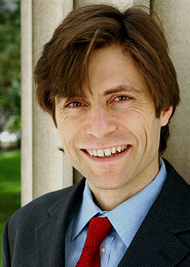
Max Tegmark, Professor of Physics
In his book, Life 3.0: Being Human in the Age of Artificial Intelligence, (2017), MIT physics prof Tegmark offers a science fiction scenario for how AI colossus Prometheus, produced by a group of idealistic programmers, the Omegas, could take over the world. And not only take over the world but make it a bureaucrat’s idea of a vastly better place. To top it off, Prometheus produces an astonishing array of popular entertainment along the way:
The Omegas noticed that after Prometheus had binge-watched a few hundred films, it started to get quite good at predicting what sort of reviews a movie would get and how it would appeal to different audiences. Indeed, it learned to write its own movie reviews in a way they felt demonstrated real insight, commenting on everything from the plots and the acting to technical details such as lighting and camera angles. They took this to mean that when Prometheus made its own films, it would know what success meant.
So Prometheus, unlike human authors, does not need to experience life in order to understand it…
Political commentators noted that, in parallel with damping regional conflicts, there seemed to be a concerted push toward reducing global threats. For example, the risks of nuclear war were suddenly being discussed all over the place. Several blockbuster movies featured scenarios where global nuclear war started by accident or on purpose and dramatized the dystopian aftermath with nuclear winter, infrastructure collapse, and mass starvation. Slick new documentaries detailed how nuclear winter could impact every country. Scientists and politicians advocating nuclear de-escalation were given ample airtime, not least to discuss the results of several new studies on what helpful measures could be taken—studies funded by scientific organizations that had received large donations from new tech companies. As a result, political momentum started building for taking missiles off hair-trigger alert and shrinking nuclear arsenals. Renewed media attention was also paid to global climate change, often highlighting the recent Prometheus-enabled technological breakthroughs that were slashing the cost of renewable energy and encouraging governments to invest in such new energy infrastructure. Max Tegmark, “The Last Invention of Man: How AI might take over the world” at Nautilus
Imagine. In AI-topia, people enjoy dogma-tainment and blindly follow its directive advice. More.

George Orwell
See also: Could AI write novels? George Orwell thought so, as long as no thinking was involved.
Serious literature will always be written, to borrow a phrase from Winston Churchill, in “blood, toil, tears and sweat” because imaging the human condition accurately is part of its nature. And if the writer lives in an unfree society, it will also be written in fear.
and
Materialist’s dream: Consciousness as a state of matter (Tegmark’s perceptronium)
Copyright © 2018 Uncommon Descent . This Feed is for personal non-commercial use only. If you are not reading this material in your news aggregator, the site you are looking at is guilty of copyright infringement UNLESS EXPLICIT PERMISSION OTHERWISE HAS BEEN GIVEN. Please contact legal@uncommondescent.com so we can take legal action immediately.
Plugin by Taragana
If DNA were a computer program…

Bert Hubert
A computer programmer looks at DNA … and finds it to be “amazing” code.
From 2006 through 2017, Dutch entrepreneur and software developer Bert Hubert contributed from time to time to a web page where he listed many of the ways the workings of DNA can be likened to coding decisions by programmers. Some of his thoughts:
The human genome is about 3 gigabases long, which boils down to 750 megabytes. Depressingly enough, this is only 2.8 Mozilla browsers.
DNA is not like C source but more like byte-compiled code for a virtual machine called ‘the nucleus’. It is very doubtful that there is a source to this byte compilation – what you see is all you get.
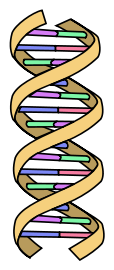 It is easier to imagine a potential source with no code than it is to imagine a code with no source but we are offered no further explanation. However, the pace picks up when we get to epigenetics, the changes we acquire during our lifetimes that are passed on through several generations without altering our DNA:
It is easier to imagine a potential source with no code than it is to imagine a code with no source but we are offered no further explanation. However, the pace picks up when we get to epigenetics, the changes we acquire during our lifetimes that are passed on through several generations without altering our DNA:
Although the actual relevant changes in the DNA of an organism rarely occur within a generation, substantial tinkering goes on by activating or deactivating parts of our genome, without altering the actual code.
This can be compared to the Linux kernel, which at boot time discovers what CPU it is running on, and actually disables parts of its binary code in case (for example) it is running on a single CPU system.
He also sees a computer analogy to “junk DNA” (non-coding DNA which was, at one time, thought to be accumulated garbage from the meanderings of evolution): … More.
Follow UD News at Twitter!
See also: H. Allen Orr on DNA as information
Copyright © 2018 Uncommon Descent . This Feed is for personal non-commercial use only. If you are not reading this material in your news aggregator, the site you are looking at is guilty of copyright infringement UNLESS EXPLICIT PERMISSION OTHERWISE HAS BEEN GIVEN. Please contact legal@uncommondescent.com so we can take legal action immediately.
Plugin by Taragana
The early universe was flat to a “suspicious” one part in a million
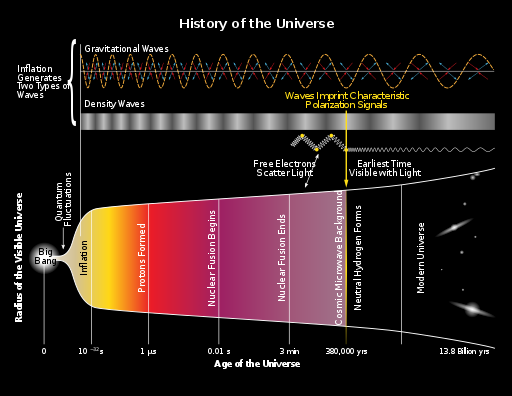
cosmic inflation theory/Drbogdan (CC BY-SA 3.0)
An “expert voice” astrophysicist explains that the Big Bang is now the “vanilla Big Bang,” which is unpopular because it doesn’t explain all observations:
The Big Bang model is our most successful explanation for the history of the universe that we live in, and it’s ridiculously easy to encapsulate its core framework in a single, T-shirtable sentence…
But
But there’s no reason for our universe to be flat. At large scales it could’ve had any old curvature it wanted. Our cosmos could’ve been shaped like a giant, multidimensional beach ball, or a horse-riding saddle. But, no, it picked flat. And not just a little bit flat. For us to measure no curvature to a precision of a few percent in the present-day universe, the young cosmos must’ve been flat to one part in a million.
Why? Of all the possible choices for curvature, doesn’t nearly perfectly flat seem a little suspicious?
The best solution we have to these conundrums is a process called inflation. The idea was first proposed — and coined! — by physicist Alan Guth in 1980 when he suggested that the same exotic process that flooded the universe with magnetic monopoles could have sent the cosmos into a period of staggeringly rapid expansion.Paul Sutter, “Why We Need Cosmic Inflation” at Space.com
Well, that’s fine but Sutter admits that the hypothesized inflation mechanisms are “poorly understood” and that a cosmology theory must not only explain observations but make successful predictions. We are waiting.
Currently, cosmic inflation is being promoted with some pretty wild theorizing. Faster than light travel is just the beginning.
Follow UD News at Twitter!
See also: Does the beginning of the universe require a cause? Alexander Vilenkin says no. William Lane Craig says yes.
The Big Bang: Put simply, the facts are wrong.
At Science: Hawking’s last work attempted to stick a pin in eternal inflation of the cosmos
and
Cosmic inflation theory loses hangups about the scientific method
Copyright © 2018 Uncommon Descent . This Feed is for personal non-commercial use only. If you are not reading this material in your news aggregator, the site you are looking at is guilty of copyright infringement UNLESS EXPLICIT PERMISSION OTHERWISE HAS BEEN GIVEN. Please contact legal@uncommondescent.com so we can take legal action immediately.
Plugin by Taragana
October 26, 2018
Stephen Meyer’s approach in Darwin’s Doubt vindicated in recent fruit fly study
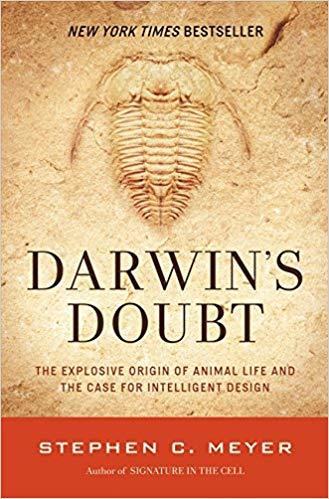 Steve Meyer, author of Darwin’s Doubt, is thought to be vindicated by a paper published in 2017, “Experimental test and refutation of a classic case of molecular adaptation in Drosophila melanogaster” (Nature Ecology and Evolution). The paper “begins with a perceptive statement about what ought to be required when establishing some genetic evolutionary pathway: Identifying the genetic basis for adaptive differences between species requires explicit tests of historical hypotheses concerning the effects of past changes in gene sequence on molecular function, organismal phenotype and fitness.” It proceeded to apply that approach to whether fruit flies became able to digest alcohol via natural selection acting on random mutation. Apparently, it didn’t: “Our experiments strongly refute the predictions of the adaptive ADH hypothesis and caution against accepting intuitively appealing accounts of historical molecular adaptation that are based on correlative evidence.”
Steve Meyer, author of Darwin’s Doubt, is thought to be vindicated by a paper published in 2017, “Experimental test and refutation of a classic case of molecular adaptation in Drosophila melanogaster” (Nature Ecology and Evolution). The paper “begins with a perceptive statement about what ought to be required when establishing some genetic evolutionary pathway: Identifying the genetic basis for adaptive differences between species requires explicit tests of historical hypotheses concerning the effects of past changes in gene sequence on molecular function, organismal phenotype and fitness.” It proceeded to apply that approach to whether fruit flies became able to digest alcohol via natural selection acting on random mutation. Apparently, it didn’t: “Our experiments strongly refute the predictions of the adaptive ADH hypothesis and caution against accepting intuitively appealing accounts of historical molecular adaptation that are based on correlative evidence.”
So how does all of this vindicate Stephen Meyer? Chapter 11 of his book Darwin’s Doubt analysed studies purporting to explain the evolution of new genes. In a concluding section, he found that many studies on gene evolution “offer neither mathematical demonstration, nor experimental evidence, of the power of these mechanisms to produce significant gains in biological information.” (p. 227)
…
In other words, just because you identify sequential and functional differences between two genes that are thought to be related, and those differences are potentially consistent with some adaptive hypothesis, that isn’t sufficient to demonstrate the hypothesis. At the very least, the paper argues, a proper test should reconstruct the ancestral protein and experimentally investigate whether the modern protein shows adaptations lacking in the ancestral protein. , “On the Evolutionary Origin of New Genes, Stephen Meyer Is Vindicated Again” at Evolution News and Science Today:
But what would happen if a number of evolution stories ended up getting filed with Mother Goose? Meanwhile,
Stephen Meyer speaks about the fact that world-class evolutionary biologists themselves are now finally acknowledging that the standard ‘textbook evolutionary theory’ (that had been indoctrinated into the general public through schools, ‘scientific’ documentaries, etc, etc) simply can not account for the various forms of life, after all. The central foundation of Darwinian evolution (natural selection acting upon variations / mutations) is finally being acknowledged by mainstream biologists, as lacking the creative ability that is necessary to account for the various forms of life. It is capable of causing diversity (eg. antibiotic resistance, variation within already existing species, etc), but not capable of creating biological novelty (eg. eyes, hearts, feet, differing body plans, etc, etc, etc).
Stephen Meyer also speaks about the (currently) incomprehensibly sophisticated computer program-like coding systems recently discovered in the operations of the cell, that powerfully point TOWARD life having been designed, and AWAY from the belief that life is the result of an unguided process. He finishes off by highlighting recent research projects being undertaken by scientists taking a ‘design approach’ to biology.
Meyer was on Dennis Prager’s radio show earlier this month:
What impressed Dennis was not theological objections. It was the fact that the field of evolution is in turmoil, a reality that the media largely conceal from the public, as Meyer has made clear in his books. “This is what you opened my mind to,” Prager said. “Scientists are having trouble with evolution!” David Klinghoffer, “Dennis Prager on Evolution: Stephen Meyer Turned Me Around” at Evolution News and Science Today:
Follow UD News at Twitter!
See also: Michael Medved discusses intelligent design theory with Darwin’s Doubt author Steve Meyer
Copyright © 2018 Uncommon Descent . This Feed is for personal non-commercial use only. If you are not reading this material in your news aggregator, the site you are looking at is guilty of copyright infringement UNLESS EXPLICIT PERMISSION OTHERWISE HAS BEEN GIVEN. Please contact legal@uncommondescent.com so we can take legal action immediately.
Plugin by Taragana
New findings challenge the “neutral” theory of evolution for 95% of human genome
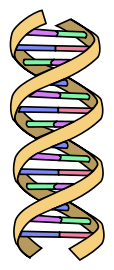 The neutral theory of evolution holds that “most variation at the molecular level does not affect fitness and, therefore, the evolutionary fate of genetic variation is best explained by stochastic [random] processes.”
The neutral theory of evolution holds that “most variation at the molecular level does not affect fitness and, therefore, the evolutionary fate of genetic variation is best explained by stochastic [random] processes.”
From ScienceDaily:
However, what scientist Fanny Pouyet and colleagues from the Group of Laurent Excoffier at the SIB Swiss Institute of Bioinformatics and University of Bern recently discovered, is that 95% of our genome actually seems to be affected by selection and other genetic biases and that markers previously thought to be neutral appear to provide skewed estimates. Their study, published in eLife, calls for the re-examination of a plethora of results and provides the tools and recommendations to correct such issues in the future.
Models used to reconstruct the history of a species or to discover how populations are related to one another rely on a key assumption: that the genome regions under scrutiny are made of “neutral” snippets of DNA, i.e. parts that have evolved randomly rather than being selected for or against. But these regions might actually not be as neutral as previously thought, according to a recent finding by scientists at SIB and the University of Bern: “What we find is that less than 5% of the human genome can actually be considered as “neutral”,” says Fanny Pouyet, lead author of the study. “This is a striking finding: it means that 95% of the genome is indirectly influenced by functional sites, which themselves represent only 10% to 15% of the genome,” she concludes. These functional sites encompass both genes and regions involved in gene regulation. Paper. (open access) – Fanny Pouyet, Simon Aeschbacher, Alexandre Thiéry, Laurent Excoffier. Background selection and biased gene conversion affect more than 95% of the human genome and bias demographic inferences. eLife, 2018; 7 DOI: 10.7554/eLife.36317
More.
Perhaps the most reasonable conclusion is that all of Darwinism is in a mess similar to that of speciation.
Hat tip: Philip Cunningham
Follow UD News at Twitter!
See also: Heads up! Neutral theory of evolution
and
Commenter nails the problem with neutral theory of evolution
Copyright © 2018 Uncommon Descent . This Feed is for personal non-commercial use only. If you are not reading this material in your news aggregator, the site you are looking at is guilty of copyright infringement UNLESS EXPLICIT PERMISSION OTHERWISE HAS BEEN GIVEN. Please contact legal@uncommondescent.com so we can take legal action immediately.
Plugin by Taragana
Michael J. Behe's Blog
- Michael J. Behe's profile
- 219 followers



